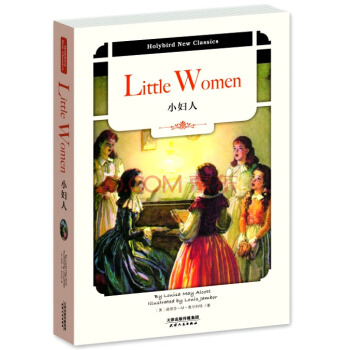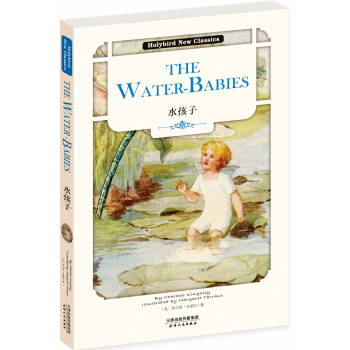

具体描述
编辑推荐
《飘》为美国女作家玛格丽特·米切尔十年磨一剑的作品,也是惟一的作品。小说以亚特兰大以及附近的一个种植园为故事场景,描绘了内战前后美国南方人的生活。通过对主人公斯佳丽与白瑞德的爱情纠缠为主线,成功地再现了林肯领导的南北战争,美国南方地区的社会生活。本书为英文原版,同时提供配套朗读免费下载,扫描图书封底二维码即可直接进入收听页面。让读者在阅读精彩故事的同时,亦能提升英文阅读水平。
内容简介
《飘》是一部以美国南北战争为历史背景、以南方的社会生活为生活环境的全景社会小说。小说全面展现美国南方社会风貌以及各色人物在巨大的社会变革中的命运变迁,通过展现不同人物在混乱复杂的社会环境中的命运变化,揭示了不同的性格所必然走向不同的命运安排。作者运用女性所特有的观察视角,细微而又深刻地描写了以斯佳丽为中心人物,以瑞德、梅勒妮和艾希礼为主要性格人物的社会活动,通过他们的社会活动,展现了纷繁复杂的社会画面,以及他们各自不同的命运走向。本书自1936年首次出版后,在世界上被翻译成29种文字,总共销售了近3000万册。1937年,小说获得普利策奖。根据此书拍成的电影《乱世佳人》于1939年在亚特兰大举行首映,引起轰动,并迅速风靡全球。
本书为英文原版,同时提供配套朗读免费下载,扫描图书封底二维码即可直接进入收听页面。让读者在阅读精彩故事的同时,亦能提升英文阅读水平。
Gone with the Wind is a novel published in 1936 by American author Margaret Mitchell. This is a coming-of-age novel features one of the most well-known characters of American literature, Scarlett O’Hara. The book explores the effect of the American Civil War (1861-1865) on the characters and is set in the state of Georgia. It follows the life of the spoiled protagonist, Ms. O’Hara as she makes her way in the world, experiencing tragedy and romance while dealing with the social changes brought by the Civil War.
Gone with the Wind was immensely popular immediately, becoming the bestselling novel in America in 1936 and 1937. Margaret Mitchell, who was reluctant to publish her work, won a Pulitzer Prize for the novel in 1937. The novel has been adapted into an Academy Award-winning film starring Clark Gable and Vivien Leigh, a play and a ballet. It has also been made into a musical in Japan, Britain and France.
Over 30 million copies of Gone with the Wind have been printed worldwide. The novel remains popular in the United States and is still studied in universities and colleges in the English-speaking world.
作者简介
玛格丽特·米切尔,1900年出生于美国佐治亚州亚特兰大市的一个律师家庭。曾就读于华盛顿神学院、马萨诸塞州的史密斯学院。1922-1926年任地方报纸《亚特兰大日报》的记者。她于1926年开始创作《飘》,10年之后,作品才问世。随后,小说获得了1937年普利策奖和美国出版商协会奖。她一生中只发表了《飘》这部长篇巨著。
内页插图
目录
Chapter 1
Chapter 2
Chapter 3
Chapter 4
Chapter 5
Chapter 6
Chapter 7
Chapter 8
Chapter 9
Chapter 10
Chapter 11
Chapter 12
Chapter 13
Chapter 14
Chapter 15
Chapter 16
Chapter 17
Chapter 18
Chapter 19
Chapter 20
Chapter 21
Chapter 22
Chapter 23
Chapter 24
Chapter 25
Chapter 26
Chapter 27
Chapter 28
Chapter 29
Chapter 30
Chapter 31
Chapter 32
Chapter 33
Chapter 34
Chapter 35
Chapter 36
Chapter 37
Chapter 38
Chapter 39
Chapter 40
Chapter 41
Chapter 42
Chapter 43
Chapter 44
Chapter 45
Chapter 46
Chapter 47
Chapter 48
Chapter 49
Chapter 50
Chapter 51
Chapter 52
Chapter 53
Chapter 54
Chapter 55
Chapter 56
Chapter 57
Chapter 58
Chapter 59
Chapter 60
Chapter 61
Chapter 62
Chapter 63
精彩书摘
Scarlett O’Hara was not beautiful, but men seldom realized it when caught by her charm as the Tarleton twins were. In her face were too sharply blended the delicate features of her mother, a Coast aristocrat of French descent, and the heavy ones of her florid Irish father. But it was an arresting face, pointed of chin, square of jaw. Her eyes were pale green without a touch of hazel, starred with bristly black lashes and slightly tilted at the ends. Above them, her thick black brows slanted upward, cutting a startling oblique line in her magnolia-white skin—that skin so prized by Southern women and so carefully guarded with bonnets, veils and mittens against hot Georgia suns.
Seated with Stuart and Brent Tarleton in the cool shade of the porch of Tara, her father’s plantation, that bright April afternoon of 1861, she made a pretty picture. Her new green flowered-muslin dress spread its twelve yards of billowing material over her hoops and exactly matched the flat-heeled green morocco slippers her father had recently brought her from Atlanta. The dress set off to perfection the seventeen-inch waist, the smallest in three counties, and the tightly fitting basque showed breasts well matured for her sixteen years. But for all the modesty of her spreading skirts, the demureness of hair netted smoothly into a chignon and the quietness of small white hands folded in her lap, her true self was poorly concealed. The green eyes in the carefully sweet face were turbulent, willful, lusty with life, distinctly at variance with her decorous demeanor. Her manners had been imposed upon her by her mother’s gentle admonitions and the sterner discipline of her mammy; her eyes were her own.
On either side of her, the twins lounged easily in their chairs, squinting at the sunlight through tall mint-garnished glasses as they laughed and talked, their long legs, booted to the knee and thick with saddle muscles, crossed negligently. Nineteen years old, six feet two inches tall, long of bone and hard of muscle, with sunburned faces and deep auburn hair, their eyes merry and arrogant, their bodies clothed in identical blue coats and mustard-colored breeches, they were as much alike as two bolls of cotton.
Outside, the late afternoon sun slanted down in the yard, throwing into gleaming brightness the dogwood trees that were solid masses of white blossoms against the background of new green. The twins’ horses were hitched in the driveway, big animals, red as their masters’ hair; and around the horses’ legs quarreled the pack of lean, nervous possum hounds that accompanied Stuart and Brent wherever they went. A little aloof, as became an aristocrat, lay a black-spotted carriage dog, muzzle on paws, patiently waiting for the boys to go home to supper.
Between the hounds and the horses and the twins there was a kinship deeper than that of their constant companionship. They were all healthy, thoughtless young animals, sleek, graceful, high-spirited, the boys as mettlesome as the horses they rode, mettlesome and dangerous but, withal, sweet-tempered to those who knew how to handle them.
Although born to the ease of plantation life, waited on hand and foot since infancy, the faces of the three on the porch were neither slack nor soft. They had the vigor and alertness of country people who have spent all their lives in the open and troubled their heads very little with dull things in books. Life in the north Georgia county of Clayton was still new and, according to the standards of Augusta, Savannah and Charleston, a little crude. The more sedate and older sections of the South looked down their noses at the up-country Georgians, but here in north Georgia, a lack of the niceties of classical education carried no shame, provided a man was smart in the things that mattered. And raising good cotton, riding well, shooting straight, dancing lightly, squiring the ladies with elegance and carrying one’s liquor like a gentleman were the things that mattered.
In these accomplishments the twins excelled, and they were equally outstanding in their notorious inability to learn anything contained between the covers of books. Their family had more money, more horses, more slaves than anyone else in the County, but the boys had less grammar than most of their poor Cracker neighbors.
It was for this precise reason that Stuart and Brent were idling on the porch of Tara this April afternoon. They had just been expelled from the University of Georgia, the fourth university that had thrown them out in two years; and their older brothers, Tom and Boyd, had come home with them, because they refused to remain at an institution where the twins were not welcome. Stuart and Brent considered their latest expulsion a fine joke, and Scarlett, who had not willingly opened a book since leaving the Fayetteville Female Academy the year before, thought it just as amusing as they did.
“I know you two don’t care about being expelled, or Tom either,” she said. “But what about Boyd? He’s kind of set on getting an education, and you two have pulled him out of the University of Virginia and Alabama and South Carolina and now Georgia. He’ll never get finished at this rate.”
“Oh, he can read law in Judge Parmalee’s office over in Fayetteville,” answered Brent carelessly. “Besides, it don’t matter much. We’d have had to come home before the term was out anyway.”
“Why?”
“The war, goose! The war’s going to start any day, and you don’t suppose any of us would stay in college with a war going on, do you?”
“You know there isn’t going to be any war,” said Scarlett, bored. “It’s all just talk. Why, Ashley Wilkes and his father told Pa just last week that our commissioners in Washington would come to—to—an—amicable agreement with Mr. Lincoln about the Confederacy. And anyway, the Yankees are too scared of us to fight. There won’t be any war, and I’m tired of hearing about it.”
“Not going to be any war!” cried the twins indignantly, as though they had been defrauded.
“Why, honey, of course there’s going to be a war,” said Stuart. “The Yankees may be scared of us, but after the way General Beauregard shelled them out of Fort Sumter day before yesterday, they’ll have to fight or stand branded as cowards before the whole world. Why, the Confederacy—” Scarlett made a mouth of bored impatience.
“If you say ‘war’ just once more, I’ll go in the house and shut the door. I’ve never gotten so tired of any one word in my life as ‘war,’ unless it’s ‘secession.’ Pa talks war morning, noon and night, and all the gentlemen who come to see him shout about Fort Sumter and States’ Rights and Abe Lincoln till I get so bored I could scream! And that’s all the boys talk about, too, that and their old Troop. There hasn’t been any fun at any party this spring because the boys can’t talk about anything else. I’m mighty glad Georgia waited till after Christmas before it seceded or it would have ruined the Christmas parties, too. If you say ‘war’ again, I’ll go in the house.”
She meant what she said, for she could never long endure any conversation of which she was not the chief subject. But she smiled when she spoke, consciously deepening her dimple and fluttering her bristly black lashes as swiftly as butterflies’ wings. The boys were enchanted, as she had intended them to be, and they hastened to apologize for boring her. They thought none the less of her for her lack of interest. Indeed, they thought more. War was men’s business, not ladies’, and they took her attitude as evidence of her femininity.
前言/序言
用户评价
梅兰妮·汉密尔顿,则是我心中另一个近乎神性的存在。如果说斯嘉丽是火焰,那么梅兰妮就是那块能够承载一切、却不被灼伤的磐石。她所代表的南方淑女的传统美德——坚韧、善良、无私和强大的内心世界——在那个崩塌的时代显得尤为珍贵。在很多关键时刻,正是梅兰妮那份看似柔弱却无比坚定的信念,支撑起了周围的人。特别是她对斯嘉丽那种超越嫉妒和误解的宽容与爱,让人读来百感交集,常常在夜深人静时为之动容落泪。这种女性力量的对比和互补,构建了小说最动人的情感核心。相比起斯嘉丽的激情四射,梅兰妮的沉静力量更具穿透力,它提醒着读者,真正的强大往往不是外显的征服,而是内心的坚守与慈悲。
评分这本《飘》的上下册,我得说,光是捧在手里的那份沉甸甸的感觉,就足以让人对这部史诗般的作品产生敬畏。装帧设计上,它确实是下了功夫的,那种带着岁月的质感,仿佛能透过封面触摸到南北战争前后那种硝烟弥漫、秩序崩塌的时代气息。我最欣赏的是,它并没有为了迎合现代审美而过度简化,而是保留了那个时代文学作品特有的那种厚重感和细节的丰富性。每次翻开书页,都能闻到一股淡淡的油墨香,这对于一个痴迷于实体书的读者来说,是电子阅读永远无法替代的慰藉。光是阅读“斯嘉丽”这个名字在那些复杂的句子中反复出现,就构成了一种仪式感。我总觉得,要真正理解这个故事的波澜壮阔,就必须拥有这样一套可以被反复摩挲、书签可以随意夹放的实体书。它不仅仅是一本书,更像是一个值得收藏的物件,承载着一个时代的记忆和无数读者的情感投射。
评分关于结局的讨论,我个人持保留态度,但也深深着迷于作者的收束方式。那句著名的“明天又是新的一天”,与其说是一种对未来的盲目乐观,不如说是对“生命不息,战斗不止”的终极宣言。它不是一个皆大欢喜的童话结局,而是一种带着创伤和疲惫的、必须继续前行的姿态。读者跟随人物经历了一场漫长而残酷的洗礼,最终他们并没有获得传统意义上的“幸福”,而是获得了幸存的资格和一种历经沧桑后的清醒。这种开放式,或者说非圆满式的收尾,反而让这部作品拥有了超越时代的生命力。它允许读者在合上书本之后,仍然能继续在脑海中推演人物的未来,思考那片红色的土地上,他们将如何面对一个不再属于旧日贵族的“新世界”。这本书的价值,就在于它迫使你思考:在一切被剥夺后,你真正想抓住、想重建的,到底是什么。
评分说实话,刚开始阅读这部巨著的时候,我差点被它那宏大的叙事背景给“劝退”了。那种对佐治亚州庄园生活、种植园经济结构,乃至于美国内战初期种种政治经济细节的铺陈,ละเอียด得让人感觉像是在上历史课。我的耐心一度在那些关于棉花收成和奴隶制度的冗长描述中摇摆不定。但正是这种近乎偏执的真实感,让后来的情节发展显得无比扎实,而不是空中楼阁。当历史的洪流真正开始裹挟住人物命运时,那些前期铺垫的社会背景就如同坚实的基石,支撑起了人物行为的复杂性和必然性。尤其是在描述亚特兰大陷落和战后重建的那部分,作者对环境描写的那种笔力,简直让人身临其境,仿佛能听到炮火的轰鸣和绝望的哭喊。它不是那种让你轻松阅读的小说,更像是一次对特定历史时期的深度潜水,需要投入巨大的精力去适应它的节奏和深度。
评分斯嘉丽·奥哈拉这个角色,简直是文学史上一个永恒的谜团和争议点。我读完后,发现自己对她的情感是极其矛盾和分裂的。一方面,我敬佩她那种近乎野蛮的生存本能和对“塔拉”的执着,那是对土地和家园最原始的依恋,让她在任何灾难面前都能找到站起来的理由。另一方面,她对待感情的短视、自私和对现实的麻木,又让人忍不住想拿起书页去敲醒她。作者似乎并不想塑造一个传统意义上的完美女主角,而是呈现了一个在极端环境下被扭曲、被逼迫成“恶女”的个体。这种复杂性,使得每一次重读都会有新的感悟。我甚至开始思考,如果我处于那个时代,面对那样巨大的不确定性,我是否也能像她一样,为了活下去而放弃一切道德上的“体面”?这种对人性的拷问,才是这部小说真正的力量所在。
评分不错的选择,好好好好好好好
评分书的质量不错,内容也很好…………
评分不错的选择,好好好好好好好
评分赶上搞活动买的,便宜了好多。实惠,一直相信京东。是正品。东西也不错。快递更给力!
评分不错不错不错不错不错不错不错不错不错不错不错不错不错不错不错不错
评分英文原版,不错不错。。。
评分到货好快,上午下单,下午送货,太喜欢了!
评分这个我老婆说买错版本了……不过想想价格,退也没意义,书还是不错的
评分还没有来的及看,看完再来追评吧。
相关图书
本站所有内容均为互联网搜索引擎提供的公开搜索信息,本站不存储任何数据与内容,任何内容与数据均与本站无关,如有需要请联系相关搜索引擎包括但不限于百度,google,bing,sogou 等
© 2026 book.idnshop.cc All Rights Reserved. 静思书屋 版权所有

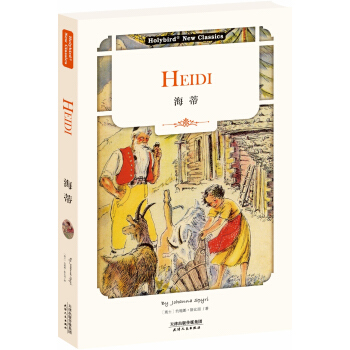



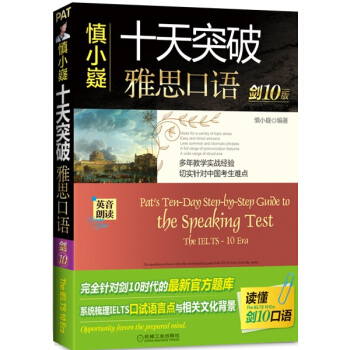
![绿山墙的安妮(英文原版) [Anne of Green Gables] pdf epub mobi 电子书 下载](https://pic.tinynews.org/11735642/55ac89a8N3763aa45.jpg)


![傲慢与偏见:PRIDE AND PREJUDICE(英文原版) [PRIDE AND PREJUDICE] pdf epub mobi 电子书 下载](https://pic.tinynews.org/11798275/563964d1Nc364db4a.jpg)


![柳林风声(英文原版) [THE WIND IN THE WILLOWS] pdf epub mobi 电子书 下载](https://pic.tinynews.org/11712500/55811455N74b72782.jpg)
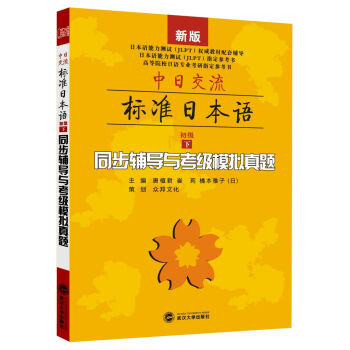
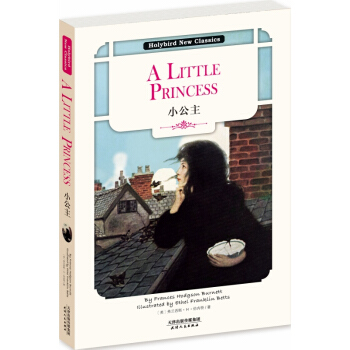
![小王子+老人与海+动物庄园 全英文原版经典名著系列读物(套装共3册) [The Little Prince+The Old Man and the Sea+Animal F] pdf epub mobi 电子书 下载](https://pic.tinynews.org/12009585/5a06d801N04a6e901.jpg)
![傲慢与偏见+海底两万里全英文版/世界经典文学名著系列 昂秀书虫(套装共2册) [Twenty Thousand Leagues Under the Sea+ Pride and P] pdf epub mobi 电子书 下载](https://pic.tinynews.org/12044943/5a0cececN6f8ade1b.jpg)

![小王子+动物庄园 全英文版 世界经典文学名著系列(套装2册) [The Little Prince+Animal Farm] pdf epub mobi 电子书 下载](https://pic.tinynews.org/11990259/5a0cf54fN38bec0ba.jpg)
